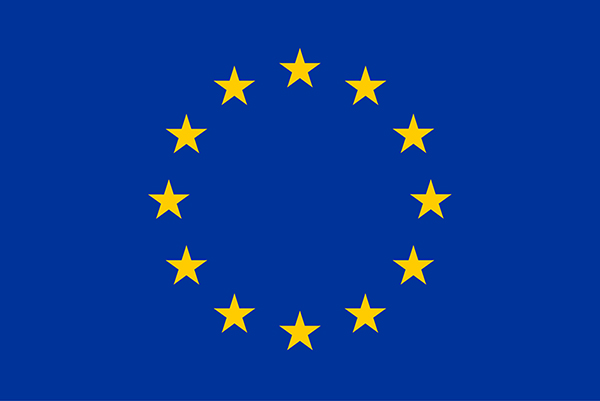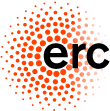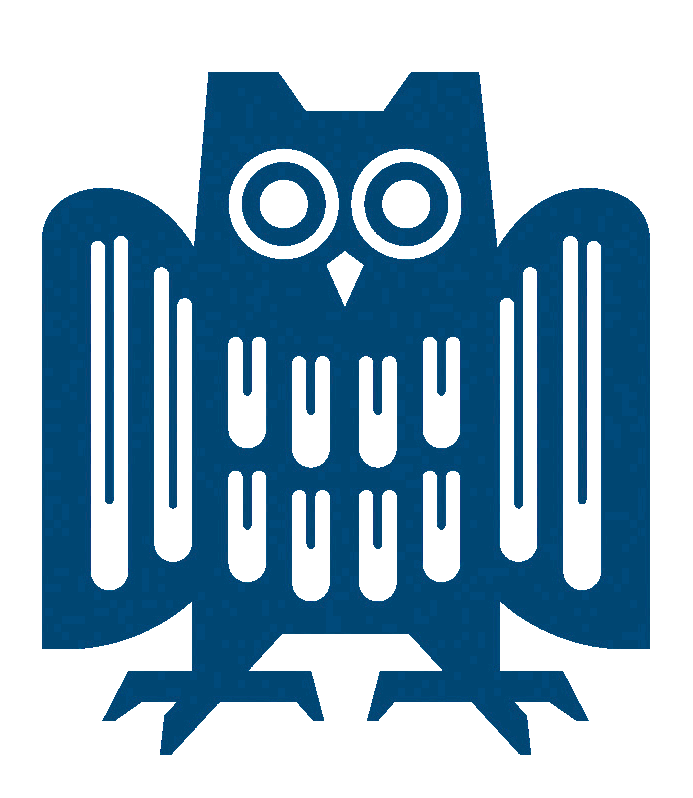Quantum Symmetries in Free Probability
Mini-workshop in Saarbrücken, 31 March - 4 April, 2014

|

|
Funded by the ERC Advanced Grant Non-Commutative Distributions in Free Probability |
Organized by Roland Speicher and Moritz Weber.
Participants
Accommodation
Schedule
Talks & Abstracts
Aim of the workshop
(a larger version of the group picture may be found here)
Participants
- Jyotishman Bhowmick (Kolkata, India)
- Julien Bichon (Clermont-Ferrand, France)
- Michael Brannan (Urbana-Champaign, Illinois, USA)
- Kenny de Commer (FU Brussels, Belgium)
- Uwe Franz (Besançon, Franche-Comté, France)
- Amaury Freslon (Paris VII, France)
- Claus Köstler (Cork, Ireland)
- François Lemeux (Besançon, Franche-Comté, France)
- Adam Skalski (Warszawa, Poland)
- Piotr Sołtan (Warszawa, Poland)
- Roland Speicher (Saarbrücken, Germany)
- Pierre Tarrago (Saarbrücken/Paris, Germany/France)
- Roland Vergnioux (Caen, France)
- Christian Voigt (Glasgow, UK)
- Jonas Wahl (Saarbrücken, Germany)
- Moritz Weber (Saarbrücken, Germany)
Accommodation
All participants are accommodated in Hotel Madeleine downtown Saarbruecken. Fur further informationhow to get to the hotel and how to get to the math department, see our webpage with information for visitors.
Schedule
Each talk consists of 50 minutes plus 10 minutes discussion. All lectures take place in lecture hall III,building E2 5. The coffee breaks and the reception are one floor down in the basement. The seminar rooms
Zeichensaal, Seminarraum 1 and Seminarraum 2 (in the basement) can be used for private discussions
during the conference.
Here is a pdf version of the schedule (will be distributed in printed form also during the reception).
Monday, 31 March
|
12:00 1:00 pm 2:00 pm 3:00 pm 3:30 pm 4:30 pm |
Reception in the basement of building E2 5 Lunch Julien Bichon Orthogonal quantum groups: examples and some classification results Coffee Jyotishman Bhowmick Quantum isometry groups for group C*-algebras Michael Brannan Quantum groups and generalized circular operators |
Tuesday, 1 April
|
10:00 am 11:00 am 11:30 am 12:00 1:00 pm 2:00 pm 3:00 pm 3:30 pm 4:30 pm |
Moritz Weber Partitions and quantum groups - introduction into easy quantum groups and their classification Coffee Problems Amaury Freslon What is a free quantum group ? Lunch Claus Köstler De Finetti type theorems in free probability and beyond Coffee Pierre Tarrago Classification and stochastic results on the unitary easy quantum groups Private Discussions |
Wednesday, 2 April
|
10:00 am 11:00 am 11:30 am 12:00 1:00 pm 2:00 pm 7:00 pm |
Roland Vergnioux Cocycles on free quantum groups Coffee Problems Christian Voigt The K-theory of quantum permutation groups Lunch Free afternoon/Excursion to the Völklinger Hütte (see also here) Dinner at Haus Brück |
Thursday, 3 April
|
10:00 am 11:00 am 11:30 am 12:00 1:00 pm 2:00 pm 3:00 pm 3:30 pm 4:30 pm |
Uwe Franz Random walks and Lévy processes on the free permutation quantum group Coffee Problems Adam Skalski Quantum symmetry groups and certain categories of two-coloured partitions Lunch François Lemeux Operator algebraic properties for free wreath product by quantum permutation groups Coffee Jonas Wahl Simplicity and uniqueness of the trace of reduced free wreath products Private Discussions |
Friday, 4 April
|
10:00 am 11:00 am 11:30 am 12:30 pm 1:00 pm 2:00 pm |
Piotr Sołtan Embeddable quantum homogeneous spaces Coffee Kenny de Commer Universal quantum groupoids Roland Speicher Lunch End of the workshop |
Talks & Abstracts
- Jyotishman Bhowmick (Kolkata, India)
Quantum isometry groups for group C*-algebrasWe will try to review some aspects of quantum isometry groups for compact type spectral triples. In particular, we will discuss the case of spectral triples on group C*-algebras coming from length function. We will discuss the structure of quantum isometry groups for some class of groups obtained in the work of mine with Skalski, as well as those by Banica-Skalski, Dalecki-Soltan and more recently by Goswami-Mondal. - Julien Bichon (Clermont-Ferrand, France)
Orthogonal quantum groups: examples and some classification resultsStarting with Wang's universal examples, I will review the constructions and origins (at least as I understand them) of several important classes of orthogonal quantum groups. I will then explain the classification of the "half-classical" ones in terms of classical compact Lie groups (joint work with M. Dubois-Violette). - Michael Brannan (Urbana-Champaign, Illinois, USA)
Quantum groups and generalized circular operatorsGeneralized circular operators are certain non-tracial deformations of Voiculescu's circular operator and arise as canonical generators of almost-periodic free Araki-Woods factors. In this talk, I will discuss some joint work in progress with Kay Kirkpatrick (UIUC), where we show that the joint law of any *-free family of generalized circular operators can be modeled in the large dimension limit by the joint law (with respect to the Haar state) of the generators of a suitably chosen family of non-unimodular free orthogonal quantum groups. This generalizes an asymptotic freeness result of Banica and Collins (2007) in the unimodular setting. - Kenny de Commer (FU Brussels, Belgium)
Universal quantum groupoidsBy a result due to T. Banica, any compact quantum group with fusion rules as for SU(2) is isomorphic to one of Van Daele and Wang's free orthogonal quantum groups. In this talk, we consider quantum groupoids having these same fusion rules. More precisely, we consider quantum groupoids over a classical, discrete, possibly infinite base. These are encoded by slight generalizations of Hayashi's compact face algebras. Our quantum groupoids are obtained from fiber functors of a unitary Temperley-Lieb category into a category of bigraded Hilbert spaces, and as such are closely linked with ergodic representations of quantum SU(2) by recent work together with M. Yamashita. As an example, we show that the dynamical quantum SU(2) groups can be obtained from the action of quantum SU(2) on a non-standard Podles sphere. This is work in progress jointly with T. Timmermann. - Uwe Franz (Besançon, Franche-Comté, France)
Random walks and Lévy processes on the free permutation quantum groupWe introduce the notions of random walks and Lévy processes on involutive bialgebras and discuss recent classification results for Lévy processes on the free permutation quantum group SN+. Several interesting families of examples are studied in detail. Joint work with Adam Skalski and Anna Kula. - Amaury Freslon (Paris VII, France)
What is a free quantum group ?The idea of using noncrossing partitions to study quantum groups emerged from several works of T. Banica around the notion of "free quantum group". However, while more and more examples have been found, no satisfying definition of a free quantum group has yet been given. I will define a large class of "free partition quantum groups", encompassing all known examples. Using a joint work with M. Weber, I will study the representation theory of these quantum groups and clarify the link with the notion of free fusion ring. I will eventually adress extensions of this work to recent examples which do not exactly fit in the "partition" setting. - Claus Köstler (Cork, Ireland)
De Finetti type theorems in free probability and beyondRecently Roland Speicher and I have found that quantum permutation groups implement a distributional symmetry of noncommutative random variables which characterizes freeness with amalgamation. My talk will introduce to these developments and moreover address how these de Finetti type theorems in free probability relate to distributional symmetries in the wider framework of noncommutative probability. - François Lemeux (Besançon, Franche-Comté, France)
Operator algebraic properties for free wreath product by quantum permutation groupsI will start by recalling a few definitions about free quantum groups such as free orthogonal and unitary quantum groups and quantum permutation groups. Then I will recall the definitions of Bichon concerning free wreath product quantum groups. I will explain how to compute the fusion rules of certain free wreath products by the quantum permutation groups. To do this I will focus on giving a combinatorial description of the intertwiner spaces in such free wreath products. I will give some applications of the knowledge of these fusion rules such as approximation properties and factoriality. - Adam Skalski (Warszawa, Poland)
Quantum symmetry groups and certain categories of two-coloured partitionsThe importance of (noncrossing) partitions in the study of representation theories of quantum groups, recognised in the fundamental work of Teo Banica and Roland Speicher, has been the subject of intensive studies in the last few years. In particular a deep connection between categories of noncrossing partitions and reflection groups was revealed by recent work of Sven Raum and Moritz Weber. In this talk I will discuss the context, related to quantum symmetry groups of free products of cyclic groups, in which two-coloured partitions naturally arise and allow for certain combinatorial and probabilistic computations. Based on joint work with Teo Banica. - Piotr Sołtan (Warszawa, Poland)
Embeddable quantum homogeneous spacesIn his pioneering work on actions of compact quantum groups Piotr Podleś introduced a class of quantum spaces with action of a compact quantum group which he called "embeddable". In my talk I will present a generalization of his ideas to the general locally compact setting. I will also touch upon various other classes of "quantum homogeneous spaces" and give an application to the problem of existence of the diagonal subgroup of a quantum group. - Pierre Tarrago (Saarbrücken/Paris, Germany/France)
Classification and stochastic results on the unitary easy quantum groupsT.Banica and R.Speicher introduced the notion of easy quantum groups, and, with S.Curran, they immediately thereafter classified all the so-called orthogonal free ones. They also found some stochastic phenomenons similar to the ones discovered by Diaconis and Shahshahani on classical Lie groups. In this talk we will explain these results, and expand all of these to the unitary free case, thanks to some combinatorics on bicolored partitions. This is a joint work with M.Weber. - Roland Vergnioux (Caen, France)
Cocycles on free quantum groupsAfter recalling some generalities about 1-cocycles on discrete quantum groups, I will explain why cocycles in the regular representation of the orthogonal free quantum groups are trivial, and how to construct a non-trivial cocycle in a representation weakly contained in the regular one. - Christian Voigt (Glasgow, UK)
The K-theory of quantum permutation groupsWe present a computation of the K-groups of the C*-algebras associated with quantum permutation groups in the sense of Wang, including some background material and related considerations. - Jonas Wahl (Saarbrücken, Germany)
Simplicity and uniqueness of the trace of reduced free wreath productsI will present a proof of simplicity of the reduced free wreath product of a compact matrix quantum group G by the quantum permutation group. To do so, I will use the fusion rules for free wreath products recently found by F. Lemeux and P. Tarrago as well as Banicas modified Powers method and results of M. Brannan on the simplicity of the reduced quantum permutation group. This generalizes a result of F. Lemeux from 2013 and is based on his proof. - Moritz Weber (Saarbrücken, Germany)
Partitions and quantum groups - introduction into easy quantum groups and their classificationWe first give a brief introduction into Banica and Speicher's easy quantum groups. We then summarize their complete classification (orthogonal case) with an emphasize on the hyperoctahedral case. It turns out that for a huge class of hyperoctahedral easy quantum groups, the diagonal subgroup contains all essential data. In some sense, this means that this class is "not so much quantum like". On the other hand, we can show that there are uncountably many easy quantum groups, hence they are a source of many examples. Finally, our investigation draws a line between those easy quantum groups which are somewhat closer to the group world and those which are more "free" and more combinatorial.
The classification in the hyperoctahedral case is joint work with Sven Raum.
Aim of the workshop
The study of the so called easy quantum groups, begun by Banica and Speicher in 2009, has attracteda lot of attention in the context of free probability. The reasons are that this class of quantum groups
is determined by the combinatorics of partitions, the envelopping von Neumann algebras have potential
links to the free group factor problem, and the stochastic aspects of easy quantum groups share free
probabilistic properties.
But most striking: Easy quantum groups seem to be the right symmetries for distributions in the context
of free probability (see for instance Köstler-Speicher's de Finetti theorem).
The aim of this kick-off workshop is to collect the present knowledge on easy quantum groups and their
relations to free probability theory, but explicitely also to go beyond it answering the question:
What are the (quantum) symmetries in free probability?
Our aim is to have more a workshop character rather than a conference. This implies to have some
problem sessions, more time for private discussions around the talks and more emphasis on future questions
- maybe even speculative ones - rather than on presenting existing results.
More specific, we try to cover the following tasks:
- Examples of combinatorial or partition quantum groups
(orthogonal and unitary easy quantum groups, extensions and other combinatorial examples, ...) - Envelopping von Neumann algebras
(results on LO+ and LU+, extensions to other easy quantum groups or other quantum
groups in general, links to the free factor problem, ...) - Stochastic aspects
(Weingarten formulas, asymptotic laws of characters, recent progress for the unitary easy quantum
groups, ...) - Properties of quantum groups in combinatorial terms
(Haar state in partition terms, fusion rules, Banica-Vergnioux's freeness conjecture, other
quantum algebraic features in terms of partitions/combinatorics, ...) - Co-actions of quantum groups in free probability
(De Finetti type theorems, exchangeabilities, co-actions in multi-dimensional settings, ...) - Relations to non-commutative geometry
(quantum isometry groups, for which noncommutative manifolds M does the QISO group G+(M)
have some freeness, ...) - *Going beyond*
(other quantum symmetries in free probability, invariances under quantum group coactions,
relations to planar algebras and subfactors, develop a quantum group approach to free probability, ...)
| Updated: 5 May 2014 Moritz Weber | Impressum |

